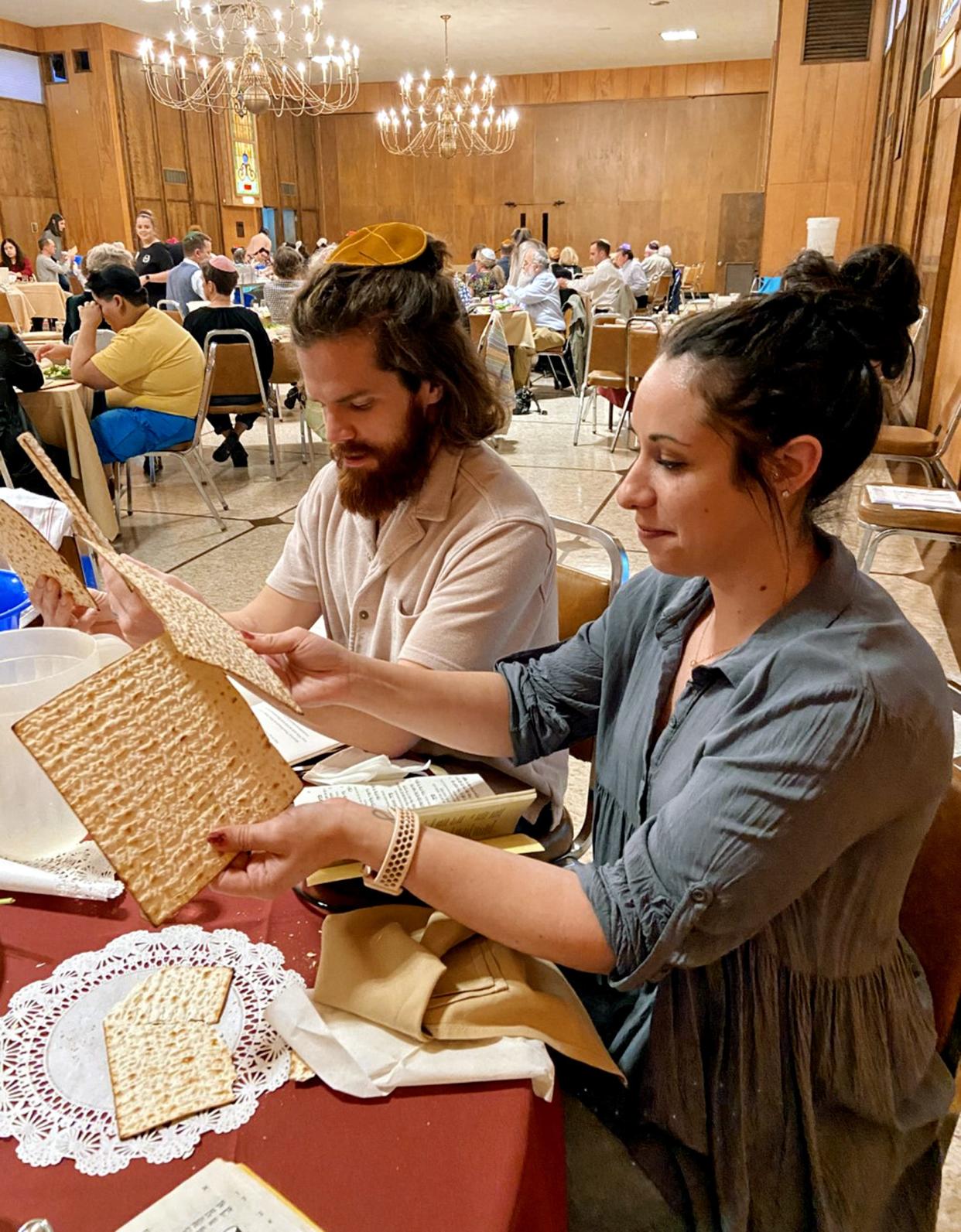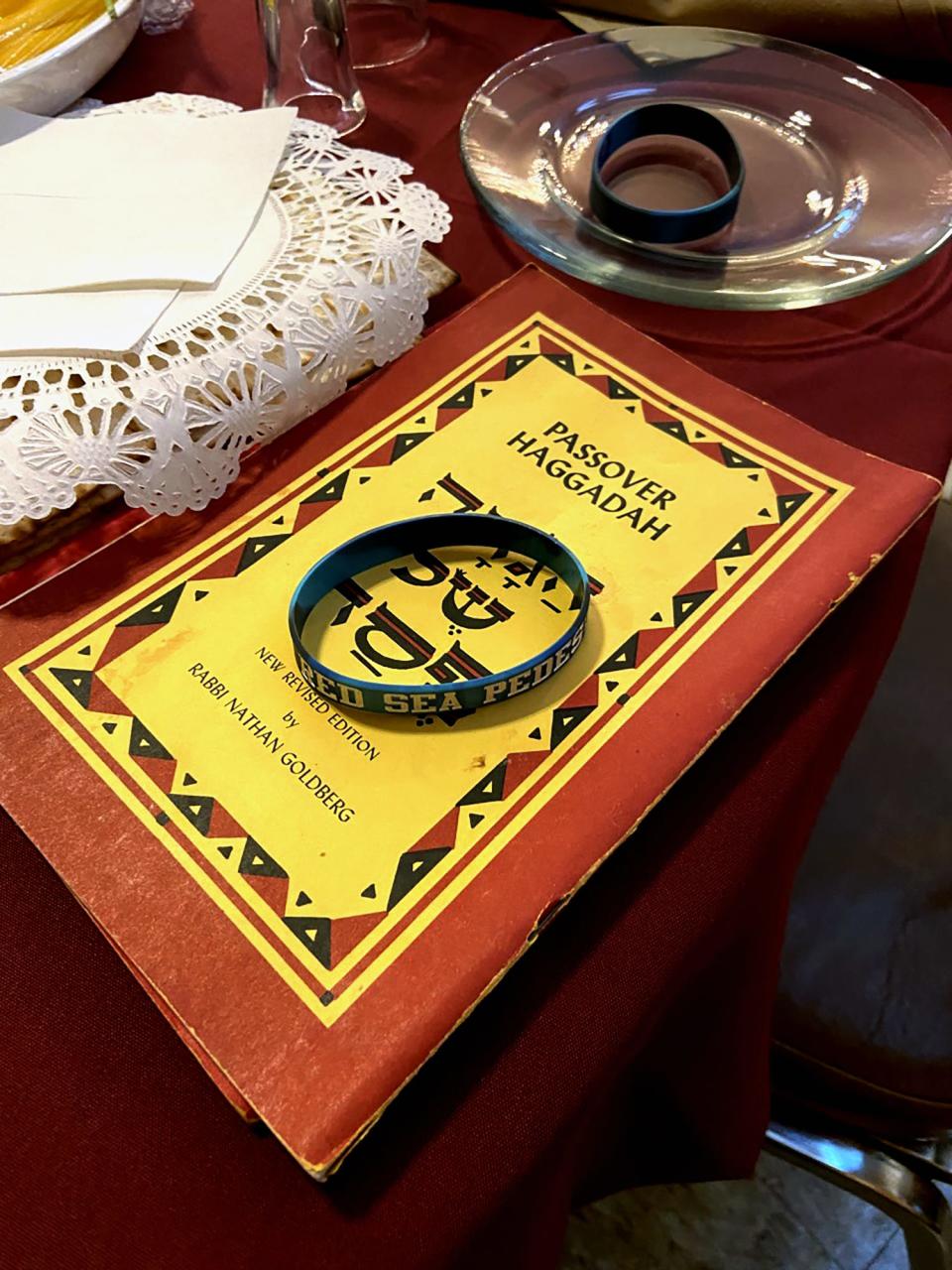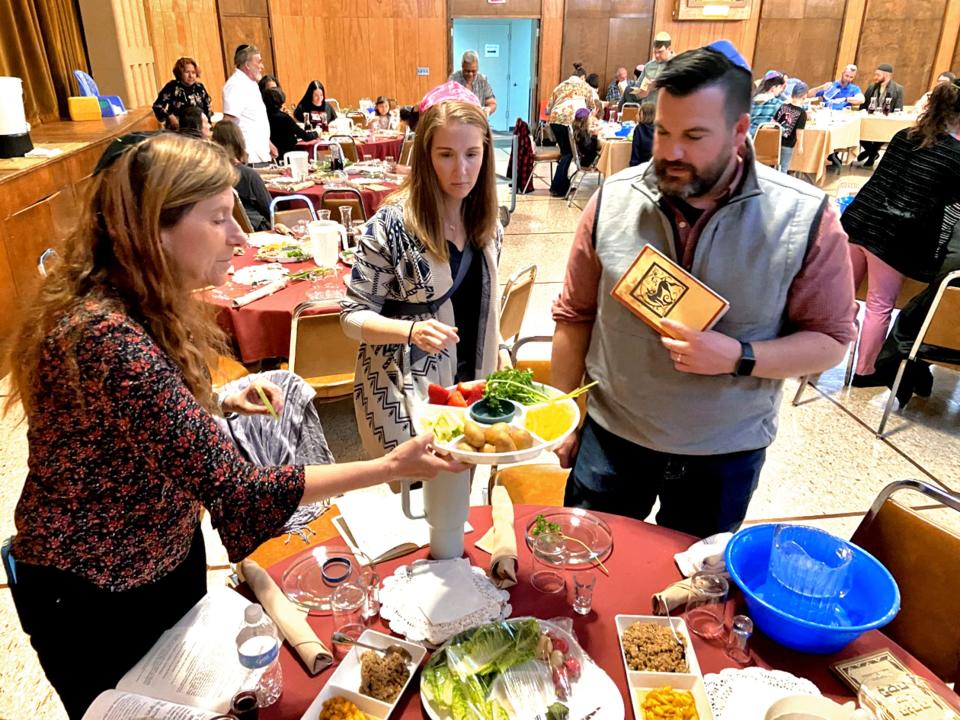Oklahoma synagogue hosts first in-person post-pandemic Passover Seder

Members of a local Jewish congregation recently joined together for a Passover Seder for the first time since 2019 — before the COVID-19 pandemic caused the cancellation of many in-person activities due to health concerns.
About 100 people attended Emanuel Synagogue's community Passover Seder on Wednesday, with Rabbi Abby Jacobson leading the sacred meal. Passover began at sundown on Wednesday. The eight-day Jewish holiday commemorates the Israelites' liberation from Egyptian slavery as told in the Book of Exodus.
The Passover Seder is an interactive sacred meal in which each part of the meal symbolizes a part of the Passover story. Traditionally, Jewish families often host a Passover Seder in their homes on the first night of the holiday. In some cases like Emanuel Synagogue, Jewish temples and synagogues host the sacred meal on the first night of Passover.
Jacobson, the synagogue's spiritual leader, lead her congregation and an assortment of interfaith guests through the meal using a Haggadah, a compilation of prayers, hymns and rabbinical literature that is traditionally used as a Passover Seder guide.
More: What is Passover? Why is it celebrated? What you need to know about the Jewish holiday
Traditional Passover Seder foods were included, each symbolic of some aspect of the Israelites' escape from the Egyptian Pharaoh and enslavement. There was matzah, a flat unleavened bread often resembling a cracker, that is featured prominently at the traditional Passover Seder. Matzah is an integral part of the Passover meal because there was no time for dough prepared by the Israelite slaves to rise before they fled Egypt. There was no time to tarry, as the story chronicled in Exodus goes.
Hard-boiled eggs, which symbolize rebirth, were also part of the meal as well, as the four cups of wine (grape juice for some guests) linked to God's promises to Israel.
Jacobson injected humor into the event by joking with guests at different times. "If you think this is taking forever, try leaving Egypt," she quipped shortly before the Seder commenced. Not to be outdone, her husband, Rabbi Juan Mejia, passed out wristbands emblazoned with the words "Red Sea Pedestrian" for everyone to wear throughout the evening.

Jacobson talked about the holiday's meaning and noted how the themes of freedom were particularly relevant at a time when antisemitism is on the rise in the U.S.
"I'm afraid hatred hasn't changed much," she said. "I hate to say it, but Pharaoh's antisemitism was old when we were leaving Egypt and it hasn't changed."
Along those lines, the rabbi told guests about the Foundation to Combat Antisemitism's Stand Up to Jewish Hate campaign designed to raise awareness about antisemitism and hatred against Jews. She said as part of the campaign, all people are being encouraged to post and share the Blue Square emoji to stand up against intolerance.
Meanwhile, Jeff Goss, the synagogue's youth director, and his family said they looked forward to their Seders at home, but they did miss the community gatherings.
"It's nice to be headed back to normal," Goss said.

The Rev. Daniel Ross, pastor of Christ Lutheran Church in Mustang, sat at the Goss family table, along with his wife, Heidi. The pair said it was their first time attending a Passover Seder, and they enjoyed the holiday gathering allowing them to get to know more about their Jewish neighbors.
"I'm having a great time," the minister said. "I think this is fantastic."
Viewpoint: Passover stories can bolster courage to stand up to injustice
After the event, Jacobson said it was important to note that Emanuel Synagogue held virtual community Passover Seders from 2020 through 2022 during the pandemic. Most notably, she and the synagogue joined with the Hillel Foundation at the University of Oklahoma to host a virtual "Darth Seder," which incorporated themes from the iconic "Star Wars" movie series.
The rabbi said the virtual events were good, but it was gratifying getting to host an in-person Passover Seder with synagogue families and community friends.
"It was certainly a lot better doing it in person," Jacobson said. "I feel like we built up to a wonderful big community Seder and then put all those skills on a shelf for three years. But it's so beautiful, being able to really bring the story of the Exodus from Egypt off the page, by making community with people and really feeling like we're leaving Egypt together."
To learn more
For more information about the Foundation to Combat Antisemitism's Stand Up to Jewish Hate and the campaign's blue square emoji, go to https://www.standuptojewishhate.org/.
This article originally appeared on Oklahoman: Emanuel Synagogue hosts in-person community Passover Seder

